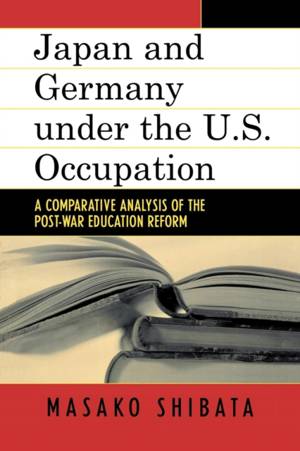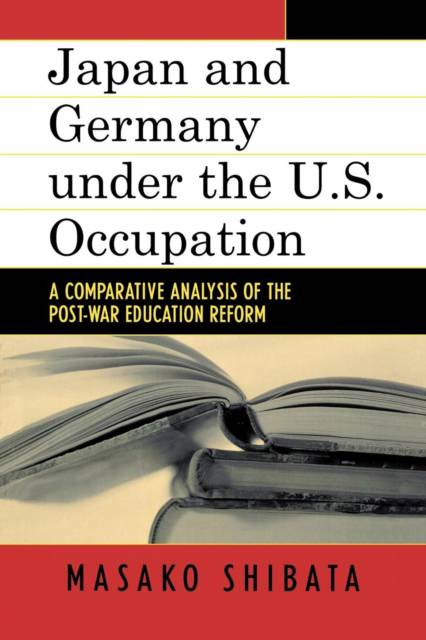
Bedankt voor het vertrouwen het afgelopen jaar! Om jou te bedanken bieden we GRATIS verzending (in België) aan op alles gedurende de hele maand januari.
- Afhalen na 1 uur in een winkel met voorraad
- In januari gratis thuislevering in België
- Ruim aanbod met 7 miljoen producten
Bedankt voor het vertrouwen het afgelopen jaar! Om jou te bedanken bieden we GRATIS verzending (in België) aan op alles gedurende de hele maand januari.
- Afhalen na 1 uur in een winkel met voorraad
- In januari gratis thuislevering in België
- Ruim aanbod met 7 miljoen producten
Zoeken
Japan and Germany under the U.S. Occupation
A Comparative Analysis of Post-War Education Reform
Masako Shibata
€ 88,95
+ 177 punten
Omschrijving
Japan and Germany under the U.S. Occupation explores the reconstruction of education in both countries after World War II. In Japan large-scale reforms were undertaken swiftly after the nation's surrender, whereas in the U.S. Zone of Germany most of the traditional aspects of education were maintained. Masako Shibata argues that differences in the role of the university and in the pattern of elite formation, traceable back to the beginnings of Meiji Japan and the Kaiserreich created the conditions for the diverging approaches of the Japanese and German leaders to the adoption of foreign educational patterns during the Occupation.
Specificaties
Betrokkenen
- Auteur(s):
- Uitgeverij:
Inhoud
- Aantal bladzijden:
- 232
- Taal:
- Engels
- Reeks:
Eigenschappen
- Productcode (EAN):
- 9780739128107
- Verschijningsdatum:
- 1/04/2008
- Uitvoering:
- Paperback
- Formaat:
- Trade paperback (VS)
- Afmetingen:
- 154 mm x 227 mm
- Gewicht:
- 353 g

Alleen bij Standaard Boekhandel
+ 177 punten op je klantenkaart van Standaard Boekhandel
Beoordelingen
We publiceren alleen reviews die voldoen aan de voorwaarden voor reviews. Bekijk onze voorwaarden voor reviews.









